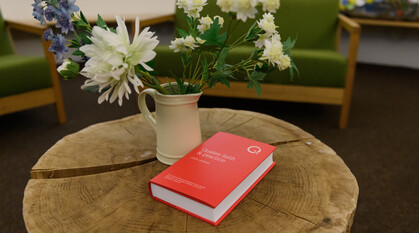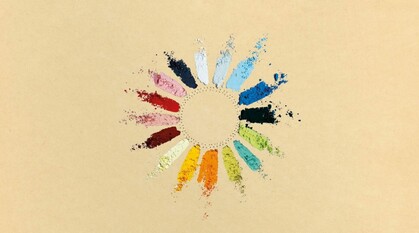The power of words: Holocaust Memorial Day 2018
Marigold Bentley reflects on the moving national commemoration event to mark Holocaust Memorial Day.
![Holocaust memorial garden stone, Hyde Park, London. Image: David Arvidsson [CC BY 1.0 creativecommons.org/licenses/by/1.0]](/media/W1siZiIsIjIwMTgvMDEvMjYvMTEvNTEvNDEvYmNmZTZmM2QtZjJkNS00MjEzLTk5ODctNTk5ZjBkOGJhMTIwL1JhY2tNdWx0aXBhcnQyMDE4MDEyNi05NzE1LTFyN3F2ZWcuanBnIl0sWyJwIiwidGh1bWIiLCI4MjB4MTIwMCJdXQ)
I have attended the national commemoration to mark International Holocaust Memorial Day in London for several years. It is a deeply moving event and each time it manages to explore not only what happened in Europe to many Jewish, gay, disabled, Roma and communist people in the Holocaust, but also reminds us all of the subsequent genocides in Cambodia, Rwanda, Bosnia and Darfur.
I was first invited because there was to be a theme focusing on the Kindertransport – the transports that helped mainly Jewish children escape Nazi persecution in Germany, Czechoslovakia, Austria and Poland. I was asked to light one of the symbolic six candles to represent the contribution Quakers had made to saving people from the death camps. Attending the event those years ago was particularly poignant for me because I have spent a great deal of time since 2011 with members of the Jewish community in Britain, talking through the rationale for our work in the Occupied Palestinian Territories and our subsequent decisions.
I remember distinctly having thoughtful and reflective conversations at the national Holocaust Memorial Day with the same people who on other occasions were unable to hide their fury. Being reminded of the historical bond Quakers have with the Jewish community through service work in the past is a good place from which to start a constructive conversation. I continue to meet many of the people who object to our current work and wherever possible we try to be constructive and forward thinking, reminding ourselves of the friendships we have created. I can't pretend that this is easy but it is an essential part of good peace-making.
The power of words
The theme for Holocaust Memorial Day this year is 'the power of words' and we heard the recording of the compelling words of Richard Dimbleby reporting from Bergen-Belsen in April 1945. This was one of the first accounts from the death camps and his son Jonathan told us that the BBC were reluctant to broadcast it, finding it hard to believe. Jonathan went on to say how important first-hand reporting is, but also what we make of it and how we use it to influence our contemporary behaviour. He brought things right up to date by saying "It is a ghastly fact that anti-semitism is a poison that is yet to be eliminated and in some – too many – parts of the world is resurgent."
We also heard letters from parents to children separated by war and poignant music of the Klezmer tradition. Much of the focus was on not forgetting the stories in order to remember, learn and never repeat what happened before.
Learning the lessons
Some of the younger contributors pointed out that genocide hasn't ended and that perhaps we haven't learned those lessons. We were all reminded of the plight of the Rohingya refugees from Myanmar which surely is a reason for continued vigilance and the need to prevent intolerance and hatred.
Holocaust Memorial Day is a reminder for all of us that there is no escape from the responsibilities we have for one another. The stories we choose to tell, the language we use and the behaviour we demonstrate must undermine hatred.
As Quakers we have many opportunities to tell our stories of loving compassion, of quiet thoughtfulness and hope in adversity. Despite the turbulent world we find ourselves in, we can talk about possibility and progress towards the world we all want to see. Words are indeed powerful. As Anne Frank said "what is done cannot be undone, but one can prevent it happening again." She is right and Quakers have a part to play along with the many allies and friends who long for the same world.


